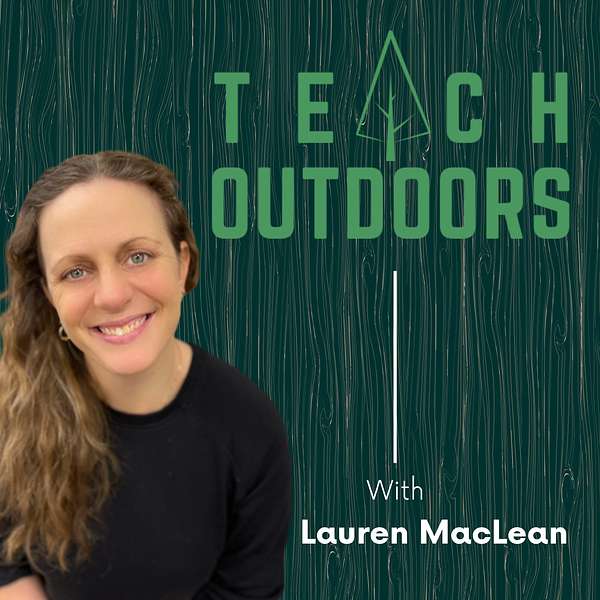
Teach Outdoors
Teach Outdoors
How Does She Do It?! Great Outdoor Learning Tips from Maxine Panchuk!
Use Left/Right to seek, Home/End to jump to start or end. Hold shift to jump forward or backward.
Nature Classroom Podcast Series: A paid podcast series that includes 6 episodes ranging from how to set up your nature routines, expectations, math connections, and social-emotional learning development. Each episode has many downloadable resources for you to print and use outdoors with your learners.
Nature's Path: A Year of Monthly Sparks: Most schools across the country are signing up for these series to use during their monthly staff meetings. For each month of the year, you receive a 5-7minute recorded powerpoint video and downloadable resources to use in your elementary school setting.
Our guest today is Maxine Panchuk, (IG: @teachingtaurus) an educator from Saskatoon, Saskatchewan who is passionate about nature, gardening, and outdoor learning. She is currently a kindergarten teacher at Buena Vista School, which has a focus on nature and outdoor based learning. Her days are usually spent exploring in the sunshine with her students and facilitating opportunities for them to observe the beauty of nature. When she is not at school, she enjoys spending time in her garden, hanging out with her cat, and biking around the community.
Some of my personal highlights from this episode are around minute 20 where Maxine talks specifically about how she incorporates literacy and numeracy into her outdoor program! From practicing oral language skills, to making human number lines, she makes it sound easy!
Novelty nature note time:
We’ve been digging up a small section in our outdoor classroom in order to plant a narrow bed of pollinator plants – like lavender. In doing so, our students have been finding a lot of chaffer beetles. They are an invasive species of beetle that feed on grass roots. We’ve been reading about some environmentally friendly ways of preventing infestation – which are beneficial nematodes – which is a parasite that will kill the beetle larvae. In the meantime, we will try to keep our grass as healthy as possible because they don’t infest healthy lawns as easily.
Maxine shares her knowledge about maple tree seeds - did you know the "wings" are also called samara?! Very cool!